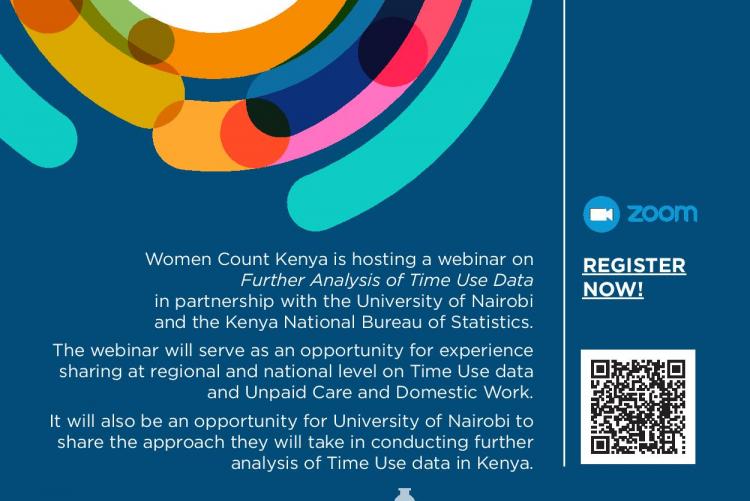The University of Nairobi in partnership with UN Women, Women Count data hub and the Kenya National Bureau of Statistics hosted a webinar on ‘Further Analysis of Time Use Data’ on Thursday, June 9,2022.
In this webinar, participants got to understand the importance of time use surveys, the modules that are used to inform research in this area and that women form 75% of the people who take part in unpaid care and domestic work.
During this webinar, some of the participants presented their studies on time use data from countries of the East African Community that is Kenya, Uganda and Tanzania.
The models used for the analysis of the time use data include; standalone and module. The standalone model is costly and less data is analysed whereas the module, allows for more data to be analysed and is less costly.
The paramount idea that cropped up from the webinar is on the matter of unpaid care and domestic work done by women. For a long time in our culture, childcare has been primarily bestowed on women, therefore they cannot compete productively in the labour market.
Prof. Tabitha Kiriti, from the University of Nairobi, asked, “If men were to be single and pay women to do the domestic work and care that they do as wives, would that have a positive impact to the country’s GDP?”
Due to the gender gap in the labour markets, women find it hard to find employment hence some choose to delay marriage and child bearing in order to find footing in terms of being economic empowered.
“To ensure that the issue of unpaid care and domestic care is curbed, there should be an intervention in creating care-giving facilities for women in employment as an aspect of inclusion for them to offer care as they work,” said Prof. Wanjiru Kabira, Director, African Women Studies Research Centre and the leader at the Women Economic Empowerment hub.
However, Dr Anne Khasakala, Director of Population Studies and Research Institute at the University of Nairobi noted, “gender studies must take into consideration the changes taking place and embrace new approaches for accounting for time use.”
The University of Nairobi through different departments has officially started its research on data time use on unpaid care and domestic work.
Dr Paul Kamau, a researcher at the Institute of Development Studies, challenged the participants to ensure that they play their part in ensuring that the data is captured, analysed and plays a role in informing policies on unpaid care and domestic work.
“There is a weak link between the data collected and the ability of the findings and conclusions to inform policies,” Dr Paul Kamau further explained.
In conclusion, Dr. Kamau urged the stakeholders to improve statistical data capture which will then translate to improving policies and consequently do away with unpaid care and domestic work.
- Log in to post comments

